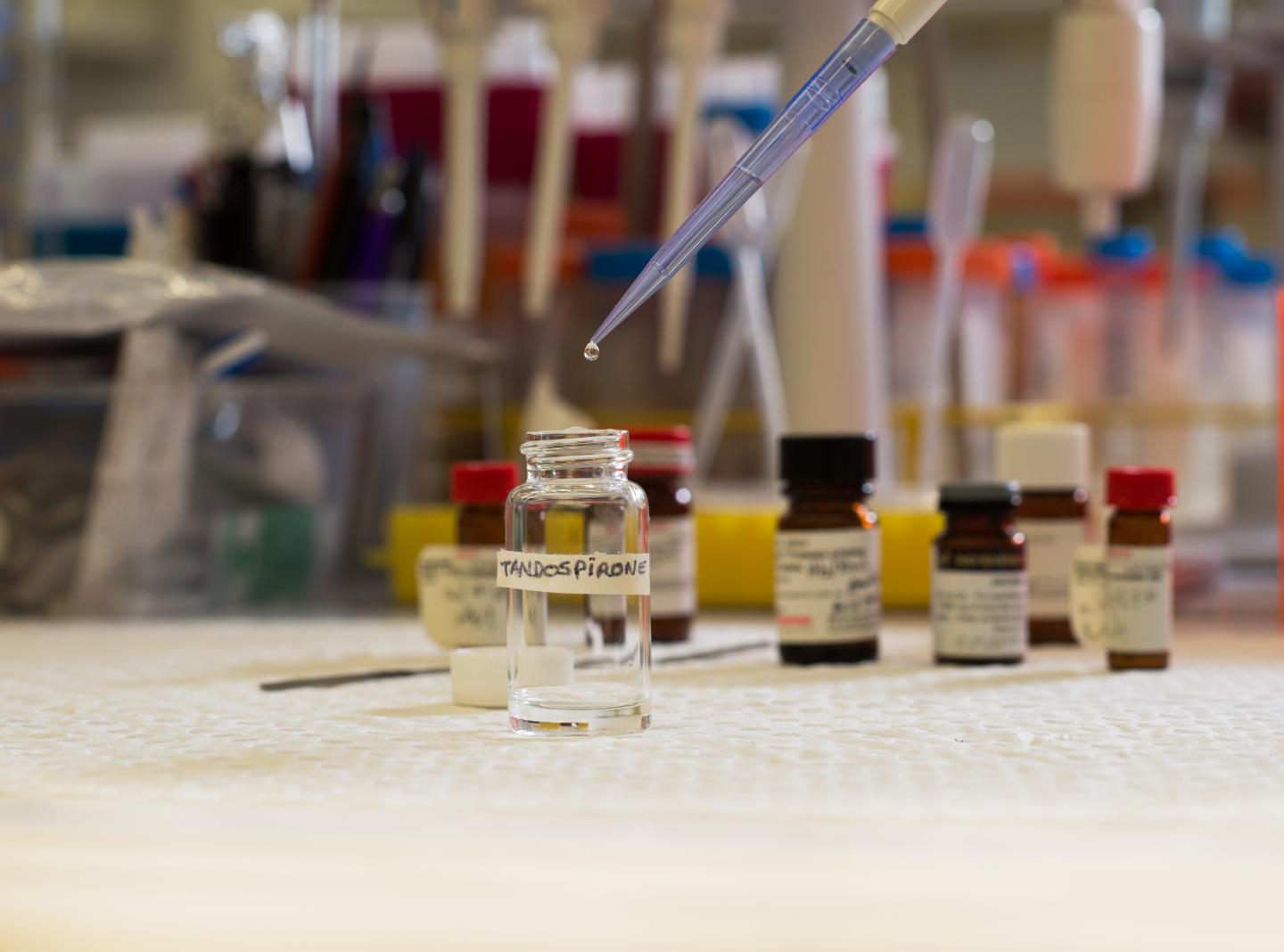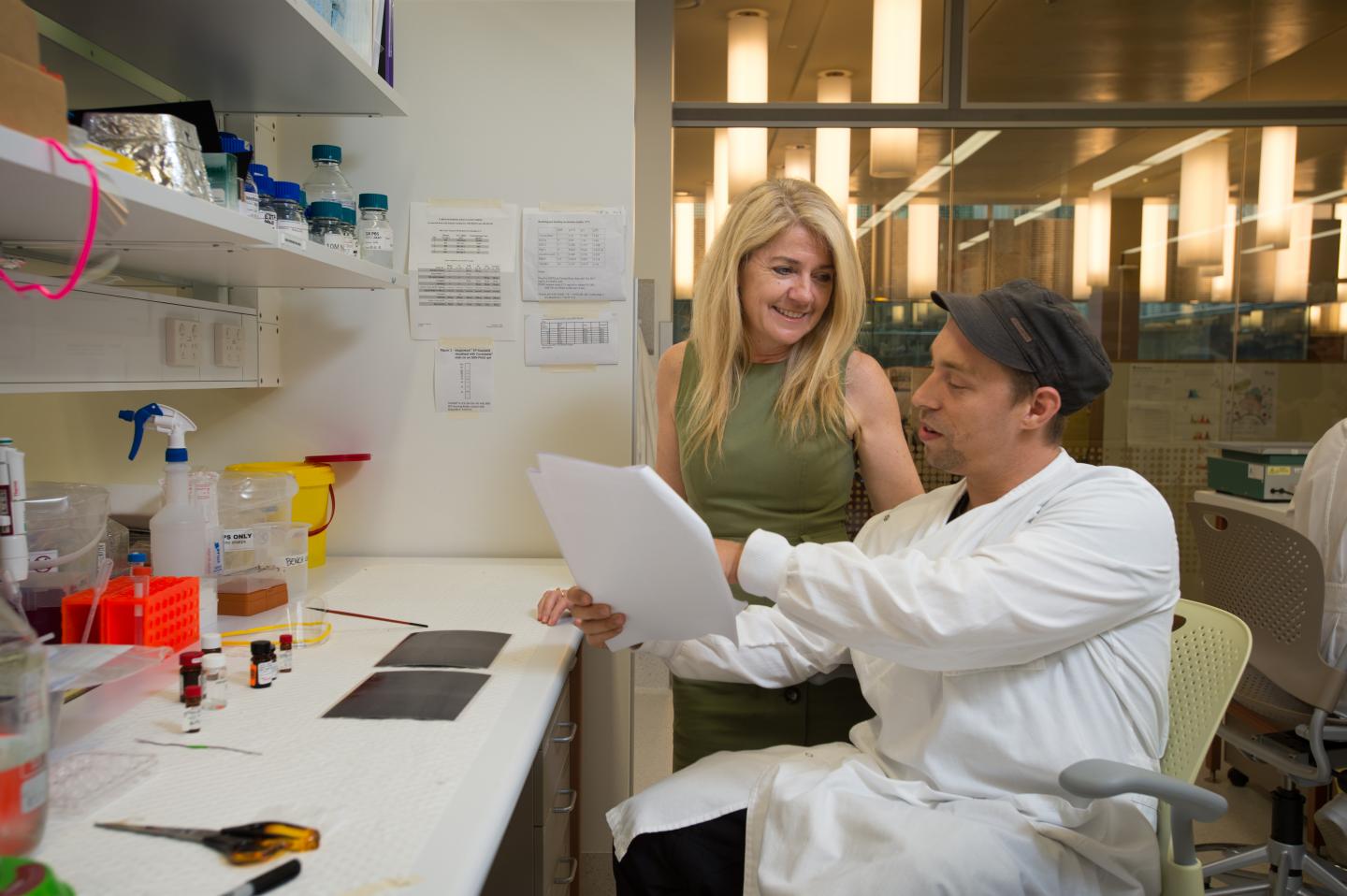
QUT researchers have shown in mice that the drug tandospirone can reverse the damaging impacts of heavy alcohol consumption on regeneration of brain cells.
A drug that is marked in Japan and China to treat anxiety and depression could potentially help the brain to reboot its ability to grow new nerve cells and also reverse psychological problems that can occur during withdrawal from long-term, heavy binge drinking. Studies in a mouse model by researchers at Queensland University of Technology (QUT) showed that two weeks of daily treatment with tandospirone, a 5-HT1A (serotonin receptor 1A) partial agonist, reversed deficits in brain neurogenesis associated with heavy, voluntary, binge drinking.
Tandospirone therapy also stopped anxiety-like behaviors in the mouse model associated with alcohol withdrawal and led the animals to reduce their alcohol intake. Describing the studies in Scientific Reports, the QUT team claims the findings indicate that 5-HT1A partial agonists could represent “a promising treatment strategy for alcohol abuse.” Their published paper is entitled, “5-HT1A Receptor-Dependent Modulation of Emotional and Neurogenic Deficits Elicited by Prolonged Consumption of Alcohol.”

QUT’s Prof. Selena Bartlett, Dr. Arnauld Belmer, and colleagues have shown in studies in mice that the drug tandospirone can reverse the damaging impacts of heavy alcohol consumption on regeneration of brain cells.
“This is a novel discovery that tandospirone can reverse the deficit in neurogenesis caused by alcohol,” comments lead researcher Selena Bartlett, Ph.D., a neuroscientist at QUT's Institute of Health and Biomedical Innovation. “We know that with heavy drinking you are inhibiting your ability to grow new neurons, brain cells. Alcohol is specifically very damaging for neurons.”
Repeated binge drinking can lead to anxiety, depression, and a range of other problems, including changes in neurogenesis, the authors write. Involvement of 5-HT1A receptors in the regulation of anxiety-like behavior and neurogenesis has previously been well documented, but their contribution to alcohol withdrawal-induced anxiety and alcohol-induced deficits in neurogenesis isn’t so well understood.
To investigate the involvement of 5-HT1A in alcohol-related brain and psychological deficits, the QUT researchers turned to the Drinking-In-the-Dark (DID) paradigm, a model of voluntary binge-like alcohol drinking in a high-drinking strain of mouse. Animals have daily access to alcohol for just 2 hours, followed by 24 hours of abstinence. They voluntarily imbibe pharmacologically relevant amounts of alcohol when it is available, and after a few weeks start to demonstrate anxiety- and depression-like behaviors within 24 hours of their last binge session, which can last for up to 21 days of withdrawal.

QUT postdoctoral research results showed that tandospirone therapy completely reversed the anxiogenic effects of alcohol withdrawal.
The QUT’s initial studies in the DID mouse model demonstrated an integral role for 5-HT1A receptors in binge-like drinking behaviors and neurogenic deficits resulting from prolonged binge drinking. Next, the team used tandospirone to treat animals experiencing their first 24 hours of withdrawal after 12 weeks of binge drinking.
The results showed that tandospirone therapy completely reversed the anxiogenic effects of alcohol withdrawal, assessed using a range of behavioral tests. Pretreatment with tandospirone also reduced how much alcohol the animals consumed during their binge periods. “…these results demonstrate that tandospirone specifically reduces the maintenance of binge-like alcohol drinking behaviors following long-term exposure in the DID,” the authors write.
Further experiments using the animal model in DID also showed that administering tandospirone for two weeks effectively reversed the neurogenic impairment resulting from chronic binge drinking. Analysis of cell type, proliferation, and distribution in the hippocampal region of the brain showed that “chronic partial activation of 5-HT1A receptors by 2-week tandospirone treatment is sufficient to totally reverse the neurogenic and neuronal differentiation impairments elicited by 15-weeks of alcohol binge-like consumption in the DID.”
“Other studies in mice have shown that tandospirone improves brain neurogenesis, but this is the first time it has been shown that it can totally reverse the neurogenic deficits induced by alcohol,” Dr. Bartlett states.
“Together, our results confirm previous observations that 5-HT1A receptors play a pivotal role in alcohol drinking behavior and the associated emotional and neurogenic impairments, and suggest that 5-HT1A partial agonists represent a promising treatment strategy for alcohol abuse,” the authors conclude.
Dr. Bartlett suggests the findings could springboard additional studies. “This opens the way to look at if neurogenesis is associated with other substance-abuse deficits, such as in memory and learning, and whether this compound can reverse these….This is not just anther drug that shows promise in helping to reduce binge drinking…it might be able to help reboot the brain and reverse the deficits that alcohol abuse causes—both the inhibition to the brain’s ability to regenerate, and the behavioral consequences that come from what alcohol is doing to the brain, like increases in anxiety and depression.”
Tradenamed Sediel, tandospirone was developed by Sumitomo Pharmaceuticals and has been marketed in Japan since 1996. Chinese regulatory approval was granted in 2003. Sumitomo claims that in contrast with benzodiazepine drugs, tandospirone displays “virtually no drug dependence or side effects such as drowsiness or dizziness.”






